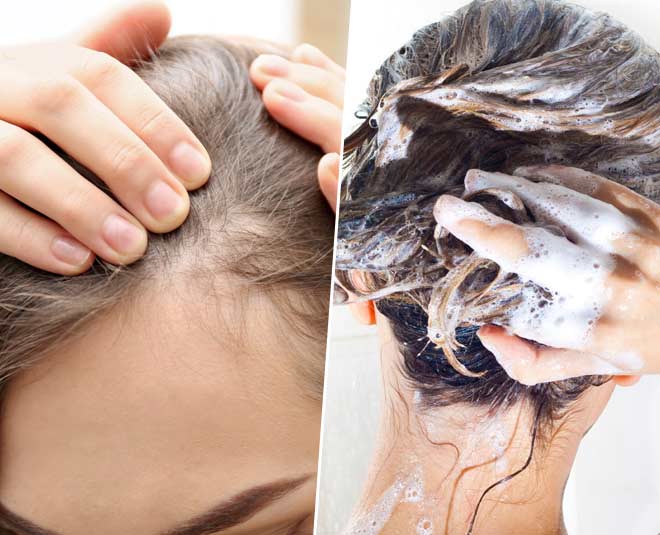
Introduction & Background
Hair loss is a common concern affecting millions worldwide, regardless of age or gender. While various treatments exist, hair loss shampoos have become one of the most popular and accessible solutions. These shampoos are specially formulated to strengthen hair roots, reduce shedding, and promote regrowth. But with so many options on the market, how do you know which is the best?
Causes of Hair Loss
Hair loss can result from a combination of factors, including:
- Genetics (Androgenetic Alopecia)
- Hormonal Imbalances (e.g., thyroid issues, pregnancy)
- Nutritional Deficiencies
- Stress and Lifestyle Factors
- Medical Conditions (like alopecia areata)
- Medications and Treatments (e.g., chemotherapy)
- Scalp Conditions (e.g., dandruff, psoriasis)
- Poor Hair Care Practices (frequent heat styling, tight hairstyles)
Indications of Hair Loss
Recognizing early signs can lead to quicker intervention:
- Excessive shedding during combing or showering
- Noticeable thinning on the scalp
- A widening part
- Receding hairline
- Bald patches
- Itchy or inflamed scalp
Symptoms of Hair Loss
Hair loss may be accompanied by:
- Thinning hair texture
- Dry, brittle strands
- Increased scalp visibility
- Redness or irritation of the scalp
- Decreased hair density
Prevention Strategies
Preventing hair loss involves a holistic approach:
- Eat a balanced, protein-rich diet
- Minimize stress through yoga or meditation
- Avoid harsh chemical treatments
- Use mild, sulfate-free shampoos
- Avoid tight hairstyles
- Treat underlying medical issues
- Massage scalp regularly to stimulate blood flow
Myths and Facts About Hair Loss
Myth: Only men experience significant hair loss.
Fact: Women also face various types of hair loss, especially post-pregnancy and during menopause.
Myth: Hair loss shampoos can regrow hair overnight.
Fact: They support hair health over time; results may take weeks to months.
Myth: Shampooing daily causes hair loss.
Fact: Using the right shampoo won’t cause hair loss and may help keep the scalp clean and healthy.
Treatments and Therapy
Medication-Based Treatments
- Minoxidil (topical)
- Finasteride (oral, for men only)
- Anti-androgens (for women)
- Biotin supplements
- Iron and Zinc supplementation
Surgical Treatments
- Hair Transplant Surgery
- Scalp Reduction
- PRP (Platelet-Rich Plasma) Therapy
Physical Therapy and Rehabilitation
- Low-Level Laser Therapy (LLLT)
- Scalp Microneedling
Lifestyle and Behavioral Interventions
- Reducing stress
- Maintaining sleep hygiene
- Avoiding smoking and excessive alcohol
Alternative and Complementary Medicine
- Ayurveda (e.g., Bhringraj oil, Amla oil)
- Homeopathy
- Herbal remedies (e.g., Saw Palmetto, Ginseng)
Psychotherapy and Counseling
- Recommended for stress or anxiety-related hair loss (e.g., trichotillomania)
Immunizations and Vaccines
- Not applicable directly to hair loss, though certain vaccines can indirectly improve health and reduce immune-related hair loss
Stem Cell Therapy
- Emerging treatment showing promise in regenerating hair follicles
Gene Therapy
- Still in early experimental stages, aims to target genetic causes of baldness
Top 5 Best Hair Loss Shampoos (2025)
| Shampoo Name | Key Ingredients | Benefits | Suitable For |
|---|---|---|---|
| Nioxin Cleanser System | Niacin, Biotin, Peppermint oil | Strengthens hair, thickens strands | Thinning hair |
| Revita High-Performance Shampoo | Caffeine, Ketoconazole, Biotin | Stimulates hair growth, reduces DHT | Men and Women |
| PURA D’OR Original Gold Label | Argan oil, B Vitamins | Organic, reduces breakage and thinning | All hair types |
| Lipogaine Big 3 Shampoo | Ketoconazole, Biotin, Castor Oil | Reduces DHT, nourishes scalp | Androgenetic alopecia |
| Ultrax Labs Hair Surge | Caffeine, Saw Palmetto | Stimulates growth, improves volume | Men (mostly) |
Top 20 FAQ on Hair Loss Shampoos
- Do hair loss shampoos actually work?
Yes, they support scalp health and reduce shedding, but results vary. - How long before I see results?
Usually 2–3 months of consistent use. - Can women use hair loss shampoos?
Yes, but ensure they are formulated for female hormonal balance. - Are these shampoos safe during pregnancy?
Check with a doctor; avoid strong medicated ones like ketoconazole. - Is it okay to use every day?
If it’s sulfate-free and mild, daily use is fine. - What ingredient should I look for?
Biotin, Caffeine, Saw Palmetto, Niacin, and Ketoconazole are effective. - What should I avoid in shampoos?
Sulfates, parabens, and alcohols. - Will shampoo alone regrow my hair?
No, it supports growth but needs a holistic approach. - Are there side effects?
Rare, but some may experience dryness or itching. - Should I pair it with conditioner?
Yes, for moisture and scalp balance. - Do organic shampoos help?
Yes, especially those with nourishing oils and herbs. - Can men and women use the same shampoo?
Some unisex shampoos work well, others are gender-specific. - Will I lose more hair when I start?
Sometimes hair shedding increases initially but reduces over time. - What is DHT and why block it?
DHT shrinks hair follicles; blocking it reduces male-pattern baldness. - Is medicated shampoo better?
For certain conditions like seborrheic dermatitis, yes. - Does shampoo help with dandruff and hair loss together?
Some do, especially those with anti-fungal ingredients. - Can teenagers use hair loss shampoo?
Yes, but choose milder, herbal versions. - Are prescription shampoos more effective?
They can be for specific conditions like alopecia or psoriasis. - How do I apply hair loss shampoo?
Massage into scalp and leave for 3–5 minutes before rinsing. - Can I stop using it once hair regrows?
Maintenance use is often necessary to prevent relapse.
Conclusion
Choosing the best hair loss shampoo depends on your hair type, cause of hair loss, and sensitivity to ingredients. While shampoos are a great starting point, lasting results come from a combination of healthy habits, proper nutrition, and if needed, medical treatment. Start with a gentle, DHT-blocking, biotin-rich shampoo, and be consistent in its use. Consult a dermatologist for personalized recommendations, especially if you have underlying conditions.